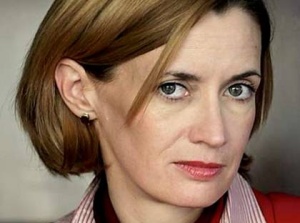Institutional electronic trading settlement by Bitcoin tech? Seriously? Australia leads the way
British blockchain advocate and expert Blythe Masters has turned her attention to sophisticated technology down under, and has voiced her perspective that Australia will build one of the very first Bitcoin-derived databases for clearing electronic equities trades, with the intention of saving an absolute fortune in administrative and back office costs for brokers. Ms. Masters, […]

British blockchain advocate and expert Blythe Masters has turned her attention to sophisticated technology down under, and has voiced her perspective that Australia will build one of the very first Bitcoin-derived databases for clearing electronic equities trades, with the intention of saving an absolute fortune in administrative and back office costs for brokers.
Ms. Masters, who rose to prominence during her senior positions at JPMorgan where she is credited with leading the invention and development of credit default swaps since the beginning of her tenure at JPMorgan in 1991, before becoming CEO of Bitcoin technology startup Digital Asset Holdings on March 10, 2015, has stated that distributed ledger technology “is probably one of the biggest ideas I have come across in 30 years working in financial services.”
“I believe the project the ASX is running has the potential to be one of the first successful [blockchain] projects in the world,” she told a packed ballroom at the ASIC Annual Forum in Sydney on Tuesday” – Blythe Masters, CEO, Digital Asset Holdings
Blockchain is a distributed database, introduced in Bitcoin, that maintains a continuously-growing list of data records that each refer to previous items on this list and is thus hardened against tampering and revision. The technology behind this has been the subject of vast support from seasoned venture capital investors, with a record $116 million having been invested in 21 Inc a year ago, and major banks, including Ms. Masters’ former employer JPMorgan investing several million dollars in the research and development of Blockchain for the purposes of automating certain banking procedures.

Ms Masters explained in Australia this week that the technology she is helping to build could eliminate reconciliation activity, which “adds up to tens of billions of dollars and waste” in banks and brokers around the world. “There are ultimately some real benefits in terms of cost reduction,” she said.
According to a report by the Sydney Morning Herald, ASX has said it could lose about $90 million in annual revenue earned from clearing and settlement services under the status quo if the technology is adopted – which Ms Masters is confident about.
ASX has a vested interest in the development of blockchain, as it owns 5% of Digital Asset Holdings, for which it paid $14.9 million in January this year, just shortly after Ms. Masters completed her 24 year tenure at JPMorgan, with her final role being Global Head of Commodities.
Ms. Masters advocates the efficiency that an automated blockchain system would bring to trade settlement: “You will have the opportunity to eliminate layers and layers of inefficient post-trade processing that costs a fortune, consumes a lot of jobs and leads to delay and increases risk” she said.
Ms. Masters, who is very much an innovator when it comes to the design of new trading instruments and how transactions can be conducted, considers the equity market to be a sequential process.
She stated this week that the complex procedures for clearing equities are over 20 years old and that if her initiatives can innovate a modern revision to the current methodology using automated processes, the $4 billion to $5 billion in costs that are currently incurred can become far less.
“We could unleash innovation, competition and better services across the value chain” – Blythe Masters, CEO, Digital Asset Holdings.
ASX is fully committed to this development alongside Digital Asset Holdings and considers that the adoption of the technology could be decided on in mid 2017.
Deputy ASX chief executive Peter Hiom said ASX is “the first exchange to say we are going to do something of this magnitude and this centrality to how the market operates today”, but the exchange didn’t want to “put our neck out or to be different from other exchanges” and was keen to work towards common, interoperable standards.









